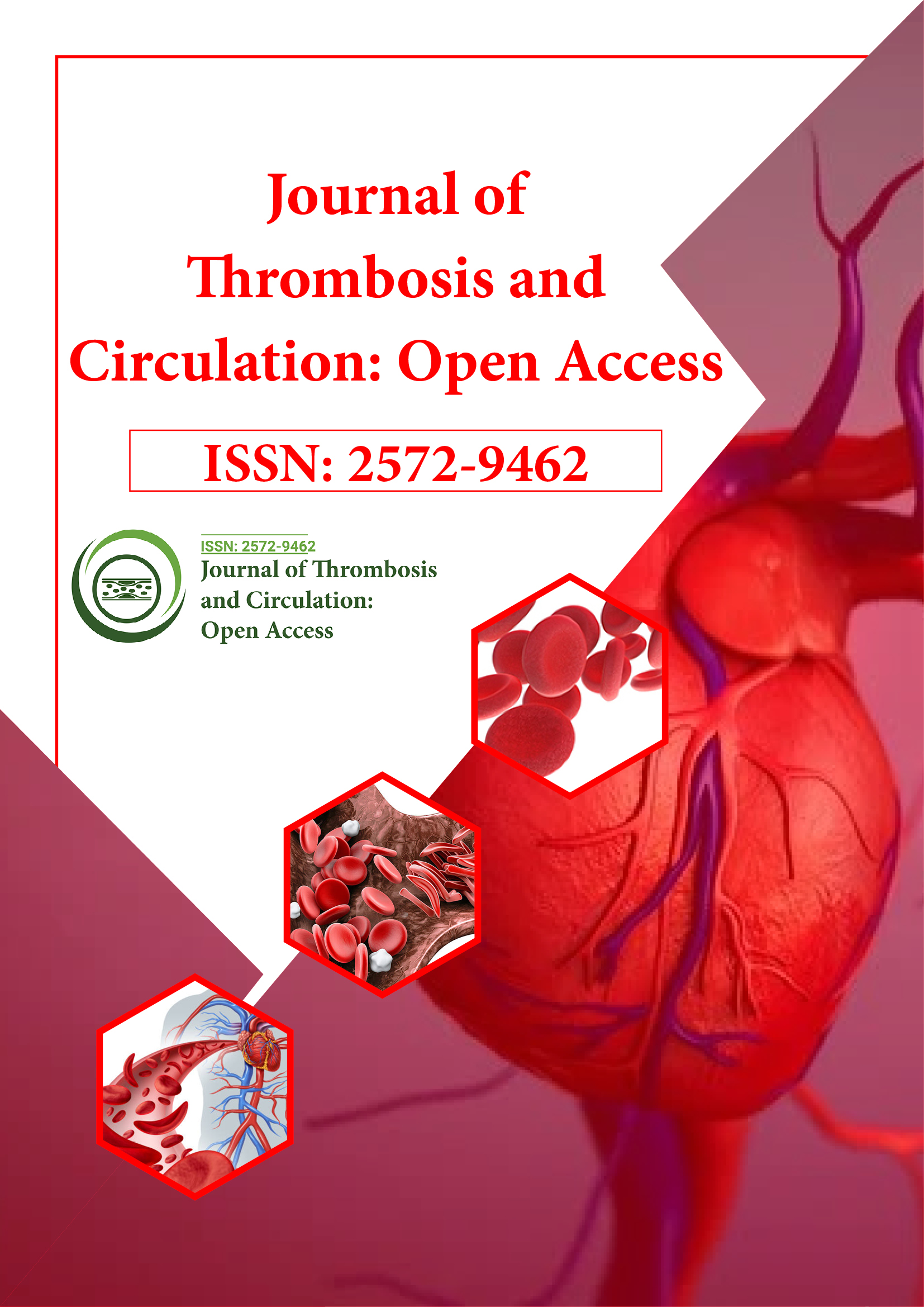Indexed In
- RefSeek
- Hamdard University
- EBSCO A-Z
- Publons
- Google Scholar
Useful Links
Share This Page
Journal Flyer

Open Access Journals
- Agri and Aquaculture
- Biochemistry
- Bioinformatics & Systems Biology
- Business & Management
- Chemistry
- Clinical Sciences
- Engineering
- Food & Nutrition
- General Science
- Genetics & Molecular Biology
- Immunology & Microbiology
- Medical Sciences
- Neuroscience & Psychology
- Nursing & Health Care
- Pharmaceutical Sciences
Opinion - (2025) Volume 11, Issue 1
Innovations in Vascular Medicine of Harnessing Science for Better Health
Alessandra Bosch*Received: 21-Mar-2024, Manuscript No. JTCOA-24-25203; Editor assigned: 23-Mar-2024, Pre QC No. JTCOA-24-25203 (PQ); Reviewed: 07-Apr-2024, QC No. JTCOA-24-25203; Revised: 24-Feb-2025, Manuscript No. JTCOA-24-25203 (R); Published: 03-Mar-2025, DOI: 10.4172/2572-9462.25.11.296
Introduction
Vascular biology stands as a cornerstone of modern medical research, delving into the intricate workings of blood vessels and their pivotal role in maintaining physiological equilibrium. From orchestrating the delivery of oxygen and nutrients to tissues to regulating blood pressure and immune responses, the vascular system is an essential nexus of biological activity. This article explores the fundamental principles of vascular biology and highlights its significance in both health and disease.
Description
The vascular system: The vascular system comprises a vast network of arteries, veins, and capillaries, intricately woven throughout the body. Arteries transport oxygen-rich blood away from the heart to various tissues, while veins return oxygendepleted blood back to the heart. Capillaries, on the other hand, facilitate the exchange of nutrients and waste products between the bloodstream and surrounding tissues. This dynamic circulatory system ensures the continuous flow of essential substances vital for cellular function.
Endothelial cells: At the heart of vascular biology lies the endothelium, a single layer of cells lining the interior surface of blood vessels. Endothelial cells play multifaceted roles, serving as gatekeepers that regulate vascular tone, blood clotting, and immune responses. Moreover, they secrete a myriad of signaling molecules, known as endothelial-derived factors, which exert profound effects on vascular health and function.
Nitric oxide: One of the most pivotal endothelial-derived factors is Nitric Oxide (NO), a potent vasodilator that relaxes vascular smooth muscle cells, thereby promoting blood flow and reducing blood pressure. Dysregulation of NO production is implicated in various cardiovascular disorders, including hypertension and atherosclerosis. Understanding the intricate mechanisms governing NO synthesis and signaling holds promise for developing novel therapeutic interventions.
Angiogenesis: Angiogenesis, the process of new blood vessel formation, is crucial for tissue growth, wound healing, and reproductive function. Dysregulated angiogenesis underlies pathological conditions such as cancer, where tumors co-opt this process to fuel their growth and metastasis. Unraveling the molecular pathways orchestrating angiogenesis provides valuable insights into potential targets for anti-cancer therapies.
Vascular disease: Disruption of vascular homeostasis contributes to a spectrum of diseases encompassing cardiovascular, metabolic, and inflammatory disorders. Atherosclerosis, characterized by the accumulation of lipid-rich plaques within arterial walls, remains a leading cause of heart attacks and strokes worldwide. Similarly, endothelial dysfunction is implicated in the pathogenesis of diabetes, obesity, and inflammatory conditions such as rheumatoid arthritis.
Therapeutic implications: Advances in vascular biology have spurred the development of targeted therapies aimed at restoring vascular function and mitigating disease progression. Pharmacological agents targeting endothelial dysfunction, such as statins and Angiotensin-Converting Enzyme (ACE) inhibitors, have revolutionized the management of cardiovascular disease. Furthermore, emerging therapies harnessing the potential of stem cells and gene editing hold promise for regenerative medicine approaches in treating vascular disorders.
Conclusion
In conclusion, vascular biology encompasses a vast and dynamic field of research, unraveling the complexities of blood vessel function and dysfunction. From elucidating molecular mechanisms to translating discoveries into clinical interventions, understanding vascular biology is paramount for advancing human health. By unraveling the mysteries of the vascular system, we pave the way for innovative therapies and personalized medicine strategies to combat a myriad of diseases plaguing society.
Citation: Bosch A (2025) Innovations in Vascular Medicine of Harnessing Science for Better Health. J Thrombo Cir. 11:296.
Copyright: © 2025 Bosch A. This is an open-access article distributed under the terms of the Creative Commons Attribution License, which permits unrestricted use, distribution and reproduction in any medium, provided the original author and source are credited.
